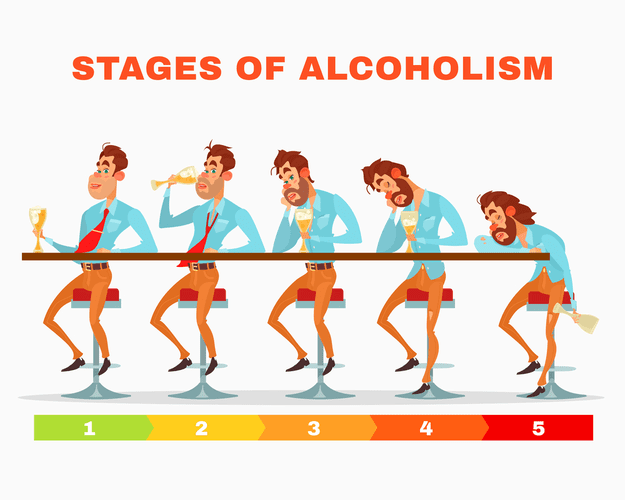Whether you’re just beginning your recovery journey or looking to maintain your progress, understanding how to rebuild your life is essential for making lasting changes and achieving long-term sobriety. This guide outlines five key long-term recovery strategies, providing practical steps, http://www.apn-spb.ru/news/article24713.htm insights, and resources to help you create a healthier, more fulfilling life. We want you to know that you can rebuild your life and create a brighter future with the right approach, support, and mindset. Here are a few strategies on how to rebuild your life for long-term recovery.
- Recovery community centers have yet to be studied in a rigorous fashion; therefore it is not possible to estimate their effectiveness.
- This may sound paradoxical but it’s a clear marker of having gone through the internal change and come out more than free from addiction.
- Experts believe that tackling the emotional residue of addiction—the guilt and shame—is fundamental to building a healthy life.
- However, this “pink cloud,” as it is sometimes referred to by individuals in recovery, will wear off and the reality of this lifelong venture will set in.
- Following the surgeon’s guidelines and attending all follow-up appointments are crucial for a safe recovery.
- It typically takes eight years or longer to achieve long-term remission even with high quality treatment and medical care.
- Although 71% reported alcohol as their primary substance, all but one participant had been polysubstance users.
Cost of Long-Term Rehab Centers
Taking it one step at a time can help you focus on finding the right support system for your recovery process and sobriety. Some people might choose to only use recovery support systems on a short-term basis during their active recovery. Others may incorporate recovery support systems into their lives for many years.

Who is most at risk of long COVID?

In addition, self-care is a vital foundation for a healthy new identity. At the very least, self-care should include sleep hygiene, http://akmc.in.ua/mediki-nazvali-glavnye-prichiny-pit-mnogo-vody good nutrition, and physical activity. Sleep is essential for shoring up impulse control and fostering good decision-making.

The key to long-term sobriety.
- Therefore, residence in the sober living home cannot be assumed to have caused the better outcomes observed.
- You may not connect with every group or feel like you fit in at every meeting.
- These studies suggest that an abnormal immune response thought to be responsible for the generation of these auto-antibodies may underlie long COVID and that removing these auto-antibodies may hold promise as potential treatments.
- One troubling question is whether this pattern — multiple relapses leading to eventual recovery — will continue now that more street drugs are contaminated with the deadly synthetic opioid fentanyl.
In fact, early on we can be more miserable than ever as we learn to deal with stress while sober. Often, we are unhealthy people in general, not just in our relationship with drugs or alcohol, and https://art-apple.ru/displayimage.php?pos=-3032 we need to work on our physical, emotional, spiritual, and social health. Recovery-supportive houses provide both a substance-free environment and mutual support from fellow recovering residents.
What Are Long-Term Rehab Programs?

Treatment should be tailored to address each patient’s drug use patterns and drug-related medical, mental, and social problems. The chronic nature of addiction means that for some people relapse, or a return to drug use after an attempt to stop, can be part of the process, but newer treatments are designed to help with relapse prevention. Relapse rates for drug use are similar to rates for other chronic medical illnesses. If people stop following their medical treatment plan, they are likely to relapse. Research has identified relapse patterns in adolescents and adults recovering from addiction. In one study, two-thirds of the adults relapsed in social situations in which they experienced urges and temptations to drink or use.
Remain supportive


